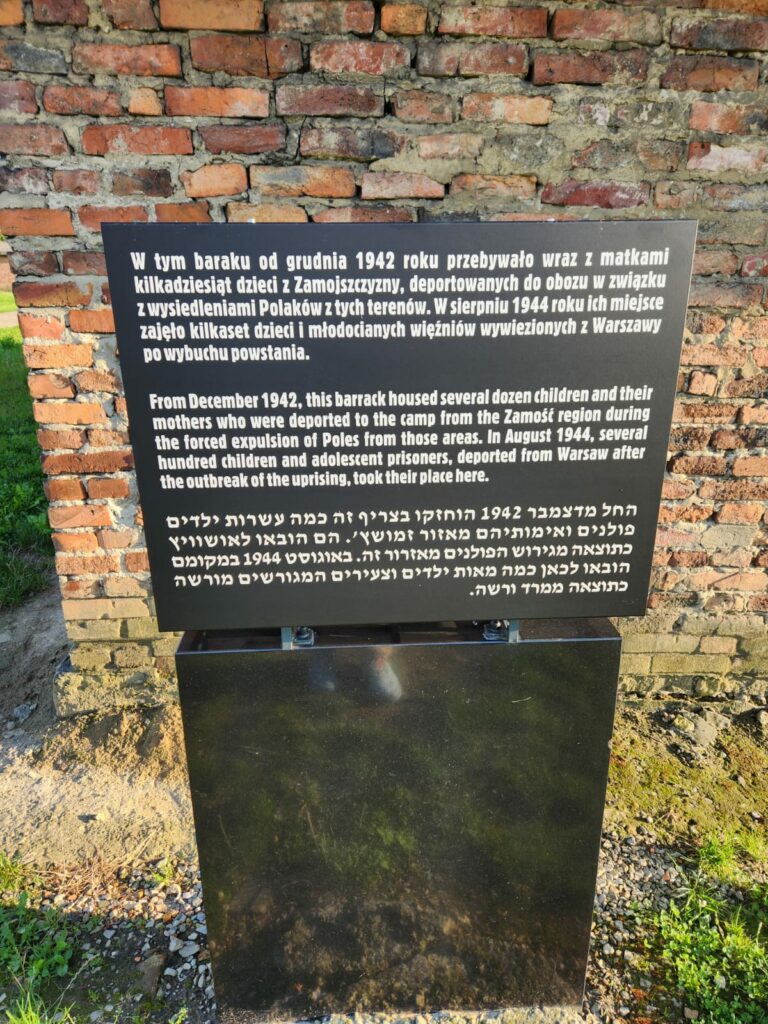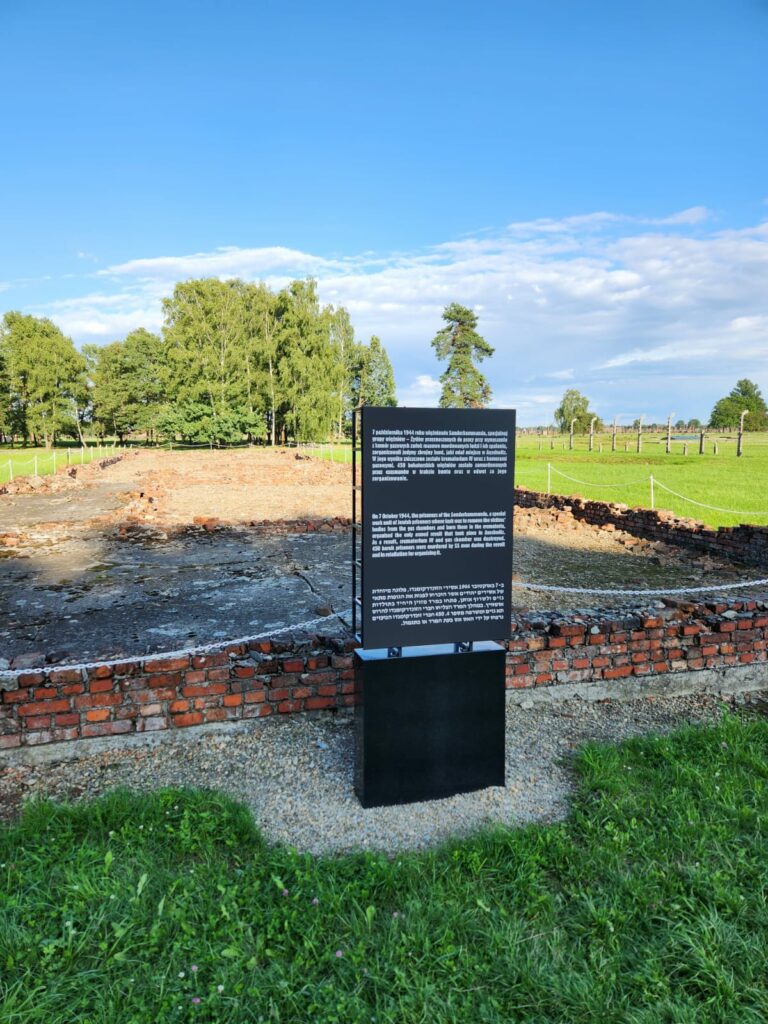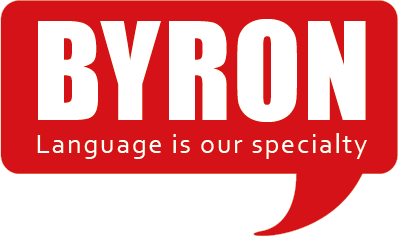Poland’s New Auschwitz (and BBC-Jihad Collaboration)

One of the most striking transformations occurred in Birkenau, where extensive reconstruction efforts had taken place. I vividly recall standing twenty three years ago within buildings on the brink of collapse during my initial visit. Today, those tumbling structures no longer exist on the grounds of the camp, having been rebuilt through a vast and likely costly reconstruction initiative overseen by the Polish government.
The Auschwitz Museum requires all visitors to tour the camps with a guide-educator before 4 p.m. This means that the vast majority of visitors must see the camp through the interpretation of Polish guides. All the tour guides (who come from the Auschwitz village and its surroundings) must have a multi-month course where they are trained to guide in accordance with the government narrative. This is a significant change, as it means that the Polish government will have a great deal of control over how tourists learn about the camp. I believe that the government is using the course to promote its own agenda.
In this text, I aim to explore the fact that this reconstruction extends beyond the mere physical renovation of buildings; it delves into the reinterpretation and distortion of the historical significance of Auschwitz as a death camp. It wishes to underestimate the role of the Poles in the killing and extermination of Jews (including the theft of their property). The Polish narrative wishes to portray the Poles as victims and not perpetrators.
Although some Poles (7,232 Poles have been recognized as Righteous Among the Nations by Yad Vashem as of January 2022) saved the lives of Jews while risking their own, many Poles were and still are anti-Semites. During the war, some of them helped the Nazis in many ways (for example, by telling them where to find Jews), they stole Jewish property after the Jews were sent to their death, and right after the war, they killed Jews that attempted to return to their stolen homes. Some of the Poles took part in the killings themselves. Yet this is not only a problem of the past. By creating specific laws regarding Jewish property and limiting freedom of speech, contemporary Poland is continuing to support the crimes of Poland of the 1940s.
Langauge, Reinterpretation and Reality Distortion

One could argue that there is no meaning to the embarrassing typo mistakes in Hebrew that can be found on the metal plates that are meant to inform the visitors of the death camp. After all, people make mistakes, and this could only mean that the work done was flawed. Perhaps. Yet, I would like to argue that these mistakes reflect and possibly mirror (in a symbolic manner) the general Polish attitude that overlooks precision when using language and representing facts. I will present evidence from my visit and the research of others, that demonstrate that Poland is trying to distort the historical meaning of Auschwitz and the Holocaust in a manner that will present the Poles as pure victims. They wish to undermine any attempt to present the Poles as people who took part in the killing of Jews and the robbery of their property. Contemporary Poland is doing all that it can within its power, not to deal with its dark past and problematic present.

When I pointed out the numerous errors in the Hebrew inscriptions on metal plates placed throughout the camp, the guide initially appeared incredulous. She argued that an Israeli translation agency was responsible for the translations. I mentioned my uncertainty about the translation process and suggested that it seemed as if machine translation had been employed, and the quality checks (if they existed) were not conducted by native speakers. She refused to believe. I was truly surprised by this disbelief. Only after I presented several pictures containing such mistakes (which can be found in this article) did the guide say that she had no involvement in this matter whatsoever and advised me to contact the museum if I wished to address the issue.

Their strategy is simple: one uses several true historical facts to argue a big false argument. The following facts are true:
- Not only Jews suffered from the Nazis. Poland lost their independence and lost about 2.7 million people (not including Polish Jews).
- There were thousands (between 7000 and 8000) of non-Jewish Poles that saved Jews. This is a large number when compared to other countries.
By stressing the fact that non-Jewish Poles and other nationalities suffered from the Nazis, they portray the Nazis as the evil force and the Poles as the victims. Moreover, they imply that contemporary Judaism attempts to withhold Auschwitz and World War Two as solely a Jewish tragedy. Scholars call it “Holocaust envy”. The aim of this attack was to silence any attempt of the Poles to come to terms with their complex and often dark history as well as dark present-day corrupted and immoral politics.
Reality is more complex. Could it be that many Poles lost their lives during the war, some even saved Jews, while others informed the Nazis where they can find Jews? Could it be that many Poles were simultaneously victims of Germany as well as perpetrators and collaborators who enjoyed the benefits of sacrificing their fellow Jewish citizens and stealing their property?
Polish Laws Limiting the Use of Language
In 2018, Poland passed a law that makes it illegal to accuse the Polish state or people of involvement or responsibility for the Nazi occupation during World War II. The law criminalizes any mention of Poles “being responsible or complicit in the Nazi crimes committed by the Third German Reich” and the harshest penalties are reserved for those who refer to Nazi-era concentration camps such as Auschwitz as “Polish death camps”. The law has two parts: one outlaws the phrase “Polish death camps,” and the other makes it a crime to accuse “the Polish nation” of complicity in the Holocaust and other Nazi atrocities. Violations of the law can result in a fine or a jail sentence of up to three years. The law has raised concerns among critics about how the Polish state will decide what it considers to be facts and how it could undermine free speech and academic discourse. The law has been criticized by historians and scholars who argue that it could whitewash the role of Poles in the Holocaust and other Nazi atrocities.
The Germans built all the death camps in Poland during World War II for several reasons, including geographical location, anti-Semitic policies, availability of labor, and secrecy. However, another often overlooked reason for building the death camps in Poland is that the Poles were less likely to resist their existence, given their Christian religious piety and anti-Semitic energy, as documented in the research of the historian Jan Grabowski (you will never find his books in the Auschwitz Museum book shops). For this reason, it is hard to imagine that they would have built the death camps in Denmark where the population actively resisted the Nazis when they asked them to hand over their Jews.
Poland is often considered a religious country, with most of its population identifying as Roman Catholic. The Catholic Church has a significant influence on the culture, history, and society of Poland. Many Polish traditions, holidays, and customs are closely tied to the Catholic faith. According to the 2011 national census, the vast majority of Poles identified as Roman Catholic, with over 90% of the population adhering to this religion. A growing body of research both within and outside Poland has established that some Poles were indeed complicit in the Nazi crimes. Some Poles actively assisted the Germans in hunting Jews and turned them over to the Nazis. Grabowski contends that during World War II, Poles were directly or indirectly responsible for the deaths of over 200,000 Jews. Some Poles were part of the police force that enforced German anti-Jewish policies such as restrictions on the use of public transportation and curfews, as well as the liquidation of ghettos in occupied Poland from 1942-1943. Revisionism by omission has been endorsed by the Polish government, which has passed laws making it a crime to publicly accuse Poland of taking part in, organizing, or being responsible for Nazi offences.
Nevertheless, the Polish Government is using many tactics to distort reality and justify the fact that up to this day, they avoid compensating Jews (and their siblings) for the property that was stolen by Poles. Poland has passed laws that make it difficult for Jewish people to recover property lost during and after World War II. The laws affect Jewish and non-Jewish owners who had properties seized in the communist era. The adopted amendment to Poland’s administrative law would prevent property ownership and other administrative decisions from being declared void after 30 years. It affects the homes or businesses of families who were wiped out in the Holocaust and whose properties were later seized by Poland’s communist-era authorities. The law sets a 30-year limit on challenges to such confiscations, and most outstanding claims will now be blocked. The Polish government says the change will end a period of legal chaos, but Israel and the US have condemned it, saying it is aimed at hobbling Jewish Holocaust survivors and their heirs from regaining property seized by Poland’s communist-era authorities. The laws have sparked a diplomatic crisis between Poland, Israel, and the US.
Another common form of distortion is the downplaying of the extent of Polish collaboration with the Nazis. For example, a 2016 Polish government publication claimed that “only a small number of Poles collaborated with the Germans during the Holocaust.” However, historians have estimated that hundreds of thousands of Poles collaborated with the Nazis in various ways, including serving in the Nazi police and military, helping to round up Jews for deportation, and even participating in the mass killings.
Yet another form of distortion is the exaggeration of the number of Poles who were killed during the Holocaust. For example, a 2018 Polish school textbook claimed that “six million Poles were killed during the Holocaust.” However, historians have estimated that the number of Poles killed during the Holocaust was closer to two million.
Moreover, Polish media outlets have often distorted the historical record by promoting anti-Semitic stereotypes and conspiracy theories. For example, in 2022, a Polish state-run television channel aired a documentary that claimed that Jews were responsible for the start of World War II.
A recent study demonstrates that a group of Wikipedia editors have been promoting a distorted version of history on Wikipedia, one touted by right-wing Polish nationalists. Because of this group’s work Wikipedia’s articles on the Holocaust in Poland underplay Polish antisemitism and collaboration with the Nazis, exaggerate the Poles’ role in saving Jews, imply that most Jews supported Communism to betray Poles, blame Jews for their persecution, and wildly exaggerate Jewish collaboration with the Nazis. The study reveals an email correspondence that leaked last year that indicates that the upper echelons are aware of the importance of Wikipedia in shaping the memory of the Holocaust. The email was sent in 2018 by an advisor of the Prime Minister of Poland, Mateusz Morawiecki, to the head of his office. The consultant wrote that it was necessary to “find someone who can correct Wikipedia entries in Hebrew” and that “we must be very discreet on this issue.” The email also says that the Polish Ministry of Foreign Affairs would allocate a special budget for this.
The forced use of Polish tour guides, translation typos, reducing the Jewish tragedy while magnifying Polish suffering, specific selection of certain types of Holocaust books, avoidance of selling books in Hebrew (although many of the visitors are Jews who speak Hebrew) and book’s that challenge the Polish narrative, avoidance of certain Jewish parts of the camp while prolonging the visit of Polish parts, distortion of Holocaust information in the English Wikipedia – all this gives the feeling Poland is trying to create a new Auschwitz. This evidence adds to the linguistic and property laws, as well as much recent research, that argues that Poland’s Auschwitz and general attitude to the Holocaust is biased, distorted and immoral.
BBC’s Collaboration with Jihad
The Sonderkommando revolt in Auschwitz was a rebellion against the Nazis by Jewish prisoners who were forced to work in the gas chambers, burning pits, and crematoria of the Auschwitz-Birkenau concentration camp. The Sonderkommando was a group of Jewish prisoners who were given special treatment and privileges in exchange for their work in the death camps. The revolt was planned and executed by members of the Sonderkommando who had been smuggling small amounts of gunpowder from a munitions factory within the Auschwitz complex to use in destroying the gas chambers and crematoria. The leaders of the Sonderkommando planned to launch the uprising and escape that would spread across the entire camp. However, the Germans were expecting a rebellion and therefore had the manpower to pacify it immediately. On Saturday, October 7, 1944, the Sonderkommando at Crematorium IV rose in revolt, but the Germans crushed the revolt. Nearly 250 prisoners died during the fighting, and guards shot another 200 after the mutiny was suppressed.
The revolt was a significant event in the history of Auschwitz-Birkenau, yet for some reason the tour that I took failed to pass through the site of the revolt where information about this Jewish bravery took place. Another important place that the tour skipped was a large part in Birkenau called “Canada” where the stolen belongings of the Jewish victims were stored before sending them to Germany. Visiting this place gives a physical demonstration of the huge size of the financial robbery. Was this part of the camp skipped because someone was afraid that questions might be asked by the visitors about the significant role the Poles had in robbing the Jews? One can only wonder.

On Saturday, October 7, 2023, exactly 79 years after the Jewish uprise in Auschwitz, Hamas terrorists launched a surprise attack on southern Israel. The attack was the most murderous in Hamas history and involved the use of rockets, paragliders, boats, motorcycles, and other vehicles to infiltrate Israel. The terrorists neutralized the automatic machine guns and surveillance antennae that lined the Gaza fence, using explosives dropped from small, slow-flying, hard-to-detect drones. They also sought to systematically disable key detection, communications, and warning systems, using snipers and commercial drones armed with explosives. The attack caught Israel off guard, as Hamas had misled Israel over the last months by giving a public impression that it was not willing to go into a fight or confrontation with Israel while preparing for this massive operation. The attack resulted in the murder of at least 1400 Israelis, including 310 soldiers, and almost 2,000 critically wounded. Hamas terrorists also abducted more than 220 Israelis, including Americans and other foreign nationals. The attack has led to a war between Israel and Hamas, with Israel vowing to eliminate Hamas.
The BBC was criticized for using the word “fighters” instead of “terrorists” in its coverage of the recent attacks in Israel carried out by Hamas militants. Other broadcasters such as Sky News and ITN have referred to Hamas militants or fighters in their coverage. The UK Defence Secretary Grant Shapps criticized the BBC’s policy of not calling Hamas militants “terrorists” and said that it is “verging on…remarkable to go to the BBC website and still see them talking about gunmen and militants and not calling them terrorists”. However, the BBC defended its decision not to describe Hamas militants as “terrorists” in its coverage, citing its editorial guidelines that say the word “terrorist” can be “a barrier rather than an aid to understanding”. The BBC’s founding principles also state that it is not the BBC’s job to tell people who to support and who to condemn and that its business is to present audiences with the facts and let them make up their own minds.
Yet, the videos released by Hamas militants themselves provide clear evidence of war crimes that undermine Hamas’ claims that its fighters did not enter Israel with the intent of killing civilians. Hamas, it seems, never heard of the Geneva Convention that forbids the murder of civilians during war.
One may ask whether deliberately attacking civilians, chopping off babies’ heads, raping and killing women, can be described as done by creatures who are merely “militants” or “fighters”? I would argue that terrorists, war criminals, and murderers are more objective and appropriate words for describing what Hamas did after invading Israel on September 7, 2023. The media that chooses to downplay the acts of Hamas and other Jihad groups are performing similar a type of act as the ones described above by the Polish Government: they seek to hide but instead, they reveal their anti-Semitism and collaboration with war crimes and criminals. Such acts must be condemned harshly and on the spot. The Poles and the BBC are not Nazis or Jihadists, but they are collaborating with war criminals by using certain linguistic choices.
The BBC publishes articles from both the left and right and its general political attitude is centrist. I argue that journalists should use correct terms in each article, regardless of their political orientation. Otherwise, they may appear to support terrorism and jihad in the name of objectivity.

Recommended further reading:
Wikipedia’s Intentional Distortion of the History of the Holocaust
